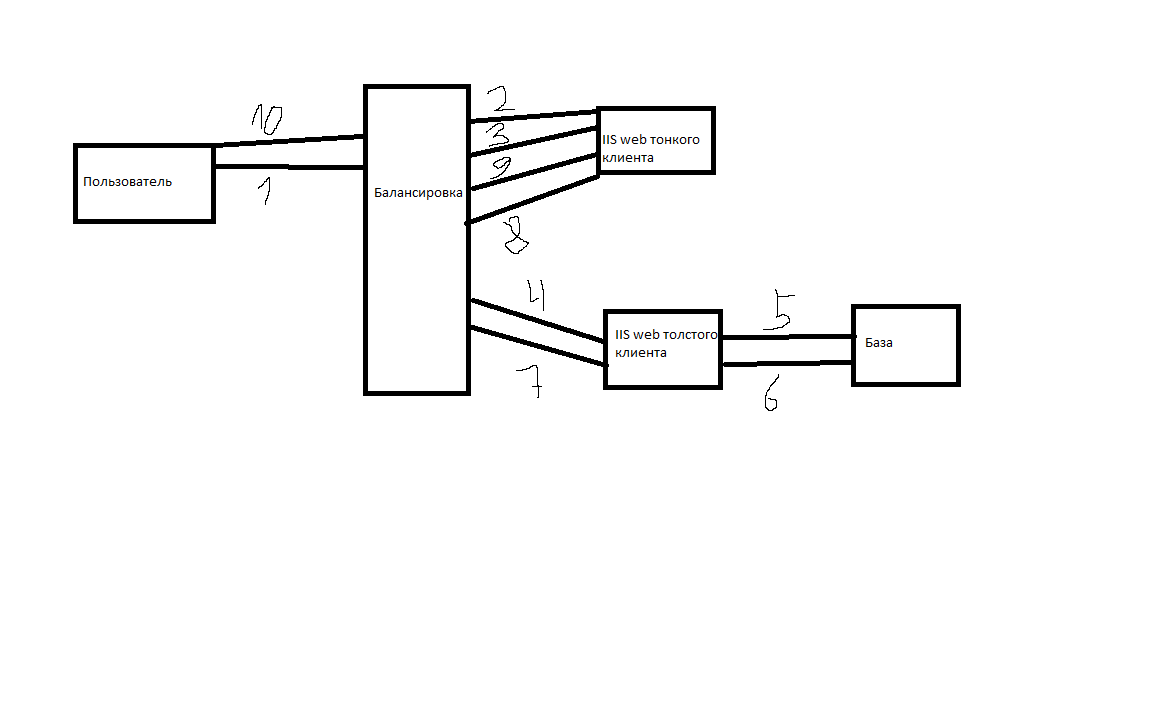Answer the question
In order to leave comments, you need to log in
Is this the right web architecture for the service?
Guys, tell me, please
Roughly drew the architecture of the current web application for workflow 
1. Request from the client to the balancer
2. From the balancer to the web iis "thin client"
3.4. Then through the "thick client" web iis balancer
5. From it goes to the base
6.7.8.9.10 All the way back
Those who make it claim that this is a completely normal scheme.
I do not do web architecture, but in my experience in IT, this is a "strange" implementation.
Someone can comment on it and give recommendations on how to talk in such cases, maybe links to articles or literature on this topic. And then these people convince that it is better not to do it.
Or maybe it's completely normal.
Thank you.
Answer the question
In order to leave comments, you need to log in
without a description of the task, limiting conditions, problems that you face, what you mean by iis thin and thick client, and even a bunch of details, your diagram and question are somewhat meaningless.
The answer to the question asked in this form: yes, hell knows.
This is something chaotic and similar to a fan lying on a table.
This is the connection of entities by connections without understanding the process from a telephone conversation / chat.
It's just not clear! Why does a user with a thin client need to travel to a thick client and back through a 4-fold balancing?!
I suggest the following scheme:
client -> application balancer -> application (as many as you like, depending on what you need) -> database balancer (if necessary) -> database (there can also be many database instances).
In real life, I use:
client -> application balancer -> application (I add, remove depending on the load) -> bathhouse database.
Well, if there is only one domain, then yes, there is no other way to do it. If subdomains, then you can have two balancers, like Amazon cloud front and elb
Whoever came up with this architecture meant microservices, but one can only guess.
Each microservice has its own area of responsibility: (warehouse, payment, accounting, map, api)
Without a real description of the task / project, it is impossible to advise anything
Didn't find what you were looking for?
Ask your questionAsk a Question
731 491 924 answers to any question